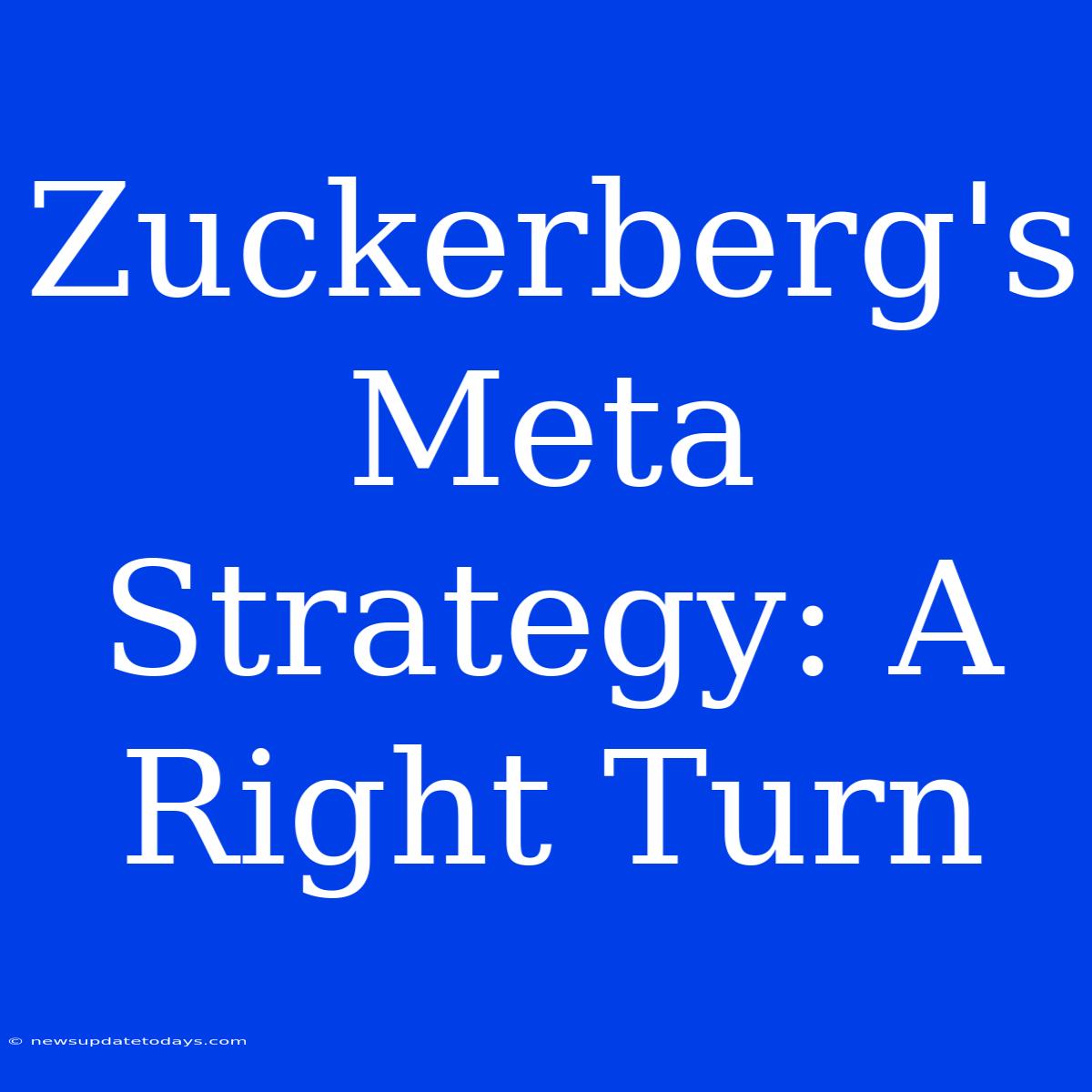Zuckerberg's Meta Strategy: A Right Turn? Navigating the Metaverse and Beyond
Mark Zuckerberg's pivot towards the metaverse, rebranding Facebook as Meta, was met with a mixture of excitement and skepticism. Initial reactions ranged from awe at the ambitious vision to concerns about the practicality and financial viability of such a massive undertaking. Now, after a period of significant investment and fluctuating market sentiment, it's time to assess whether Zuckerberg's bold bet is paying off, and whether it truly represents a "right turn" for the company.
The Metaverse: A Gamble Worth Taking?
Meta's metaverse strategy rests on the belief that immersive digital experiences will fundamentally reshape how we interact, work, and play. This involves significant investment in virtual reality (VR) and augmented reality (AR) technologies, the development of interconnected virtual worlds, and the creation of new platforms and tools to support this ecosystem.
The Challenges: The path to the metaverse is fraught with challenges. The current VR/AR hardware is still expensive and relatively niche, limiting mass adoption. Building engaging and compelling virtual worlds requires substantial resources and creative innovation. Furthermore, concerns about user privacy, data security, and the potential for misuse within these virtual environments remain significant hurdles.
The Potential: Despite the challenges, the potential rewards are substantial. A successful metaverse could unlock new revenue streams through virtual goods, services, and advertising. It could revolutionize industries ranging from gaming and entertainment to education and healthcare. Moreover, it positions Meta at the forefront of a potentially transformative technological revolution.
Beyond the Metaverse: A Broader Perspective
While the metaverse remains a central focus, Meta's strategy extends beyond it. The company continues to invest in its core social media platforms, including Facebook, Instagram, and WhatsApp. These platforms remain critical revenue generators, providing a solid foundation for Meta's overall financial health.
Diversification and Innovation: Meta is actively exploring other areas of innovation, including artificial intelligence (AI), which is being integrated into various aspects of its products and services. This diversification helps mitigate the risks associated with relying solely on the success of the metaverse.
Addressing Criticism: Meta has faced considerable criticism regarding its data practices, its impact on mental health, and the spread of misinformation on its platforms. Addressing these concerns is crucial to maintaining user trust and ensuring the long-term sustainability of the company.
Is it a Right Turn? A Cautious Optimism
Whether Zuckerberg's Meta strategy is a definitive "right turn" is still debatable. The metaverse remains a long-term bet, and its success is far from guaranteed. However, Meta's diversified approach, continued investment in core platforms, and exploration of new technologies suggest a strategy that aims for long-term growth and adaptation.
Key Factors for Success: The future success of Meta's strategy will hinge on several key factors:
- Increased VR/AR adoption: Making the technology more accessible and affordable is critical.
- Compelling metaverse experiences: Creating engaging and valuable virtual worlds is essential to attract and retain users.
- Addressing ethical concerns: Building trust and addressing concerns about privacy and safety is paramount.
- Maintaining financial stability: Balancing long-term investments with short-term financial performance is crucial.
In conclusion, while the road ahead remains uncertain, Meta's strategic shift towards the metaverse and beyond represents a bold gamble with significant potential. The coming years will be crucial in determining whether Zuckerberg's vision will translate into sustainable success or prove to be a costly misstep. Only time will tell if this truly was the right turn for Meta.

